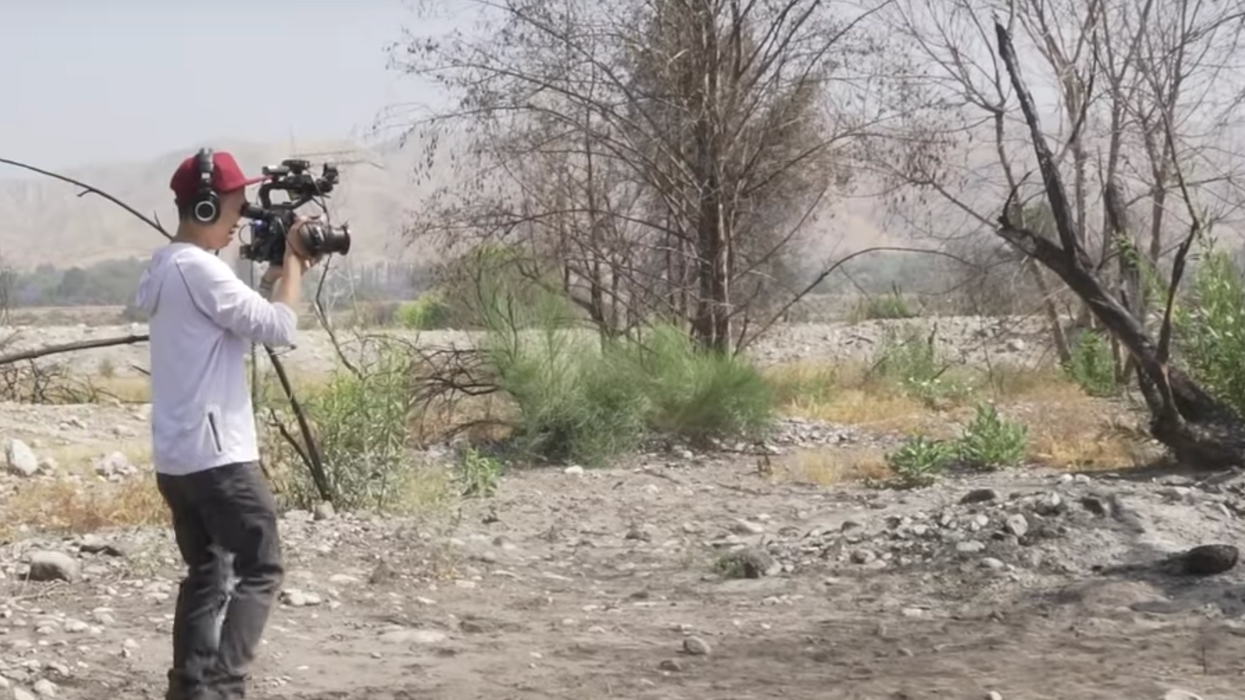5 Common Mistakes of New Filmmakers (and How to Avoid Making Them)
Sometimes it's better to learn from other people's mistakes instead of your own.

As it is with anything, your first few years of filmmaking is going to be a little rocky, making some pretty big, messy, and even embarrassing mistakes left and right. However, you do have the option of making far fewer of them, that is if you know what they are and how to avoid them. In this video, Jay P. Morgan of the Slanted Lens teams up with filmmaker Kenneth Merrill to go over some of the most common mistakes beginner filmmakers make when they first start shooting, as well as what you can do to ensure that you don't fall into the same traps. Check it out below:
Okay, so the craft of filmmaking is bursting with opportunities to make a misstep, so suffice it to say that this little list barely scratches the surface about what to expect when you first get going. However, it does give you a pretty good idea of the kinds of techniques and concepts that often go unnoticed by novices, from camera movement to sound recording.
Let's quickly go over the tips Morgan and Merrill talk about in the video:
- Not moving the camera: "Put camera on tripod." It could be the mantra of every Filmmaking 101 instructor in the universe, but 1.) they only say that because they're friggin' tired of watching horrible handheld work, and 2.) that's not always going to be the best option to tell your visual story. Learn different ways of moving the camera, including handheld, using sliders, dollies, mini-jibs, and whatever else you've got on hand. Then, educate yourself on the visual significance of those moves.
- Neglecting sound: Sound is often more important than visuals. Do not make the mistake of being unintentional or careless with the way you record audio, because if your audience can't stand to listen to your crackling, buzzing, mind-numbing humming audio, then they will no longer be your audience.
- Overuse of depth-of-field: I know that bokeh looks cool, but is it right for your shot? What do I mean? Well, shallow depth-of-field implies that what's in focus is very, very important. If it's not, at least in any kind of particular way, then you might want to think about deepening that focus.
- Not getting enough coverage: Don't shoot all wides, my friends! Shot size is an incredibly important aspect of filmmaking, so be sure to get enough coverage so your editor has enough to work with. Here's a cool coverage technique you can try.
- No story: Story is king. If you don't have one, don't bother busting out your gear.
There are so many friggin' mistakes that you're going to make as a beginner filmmaker— hell, you're stilling going to be making some of them (and a few new ones) as a veteran! What is one mistake you want to warn new filmmakers about? Let us know down in the comments.
Source: The Slanted Lens













